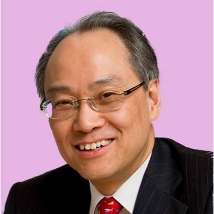It has been a few years since the Academy of Ancient Music pioneered the programme The Four Seasons: Nature’s Voice and Verse. Its debut at Hong Kong City Hall on Sunday was the start of a China tour covering Shanghai, Beijing and Tianjin. The two unusual features of the original programme are that it pairs Vivaldi’s four violin concerti with the accompanying sonnets, widely believed to have been written also by him; and separates them with vocal interludes from works of his contemporaries. I was rather looking forward to seeing how the poetry might enhance the music, but as it turned out, the verse part of the programme was dropped. Nevertheless, the inclusion of vocal separators provided welcome change of pace in the orchestral music.
With only sixteen players including the soloist – far bigger than a chamber ensemble but only a fraction of a standard orchestra – the Academy was destined to make the evening intimate and relaxed, and the archlute added a tinge of lightness to the continuo. For Baroque composers, the role of the soloist was less prominent and assertive than for Romantic composers, perhaps even for those in the Classical period. Director and violin soloist of the evening, Pavlo Beznosiuk, played this primus inter pares role well. Clearly calling the shots on tempo and emphasis, he communicated with the rest of the orchestra with no more than gentle nods and swaying of the body.
“Spring” got off to a lacklustre start, with not quite enough sense of freshness and merriment in the opening movement. The near duet between solo violin and viola was tender and sensitive, although Vivaldi apparently labelled the former “the sleeping goatherd” and the latter “the barking dog”. The final movement was bright and sparkling, with all the instruments joining in to evoke a symphony of chirpy birdsong. The drowsy opening of “Summer” rankled, much as heat would at that time of year, but the duet between solo violin and cello heightened the sense of stickiness. The rhythmic pulse in the final movement was fast and exhilarating, imitating the ferocity of a lashing hailstorm.
Soprano Elin Manahan Thomas, in a full-length peacock dress, showcased her impeccable diction and versatility in songs from Purcell’s The Fairy Queen. Her light and ethereal rendering of the cheerful “Thus the Ever Grateful Spring” quickly turned to darkness in the wistful lament “See My Many Colour’d Fields”. Tackling the tongue-twisting opening of “Like clouds, stormy winds them impelling” from Handel’s The Triumph of Time and Truth, she brought the first half of the evening to a close.
The celebratory dance that kicked off “Autumn” featured a delightful sparring match between solo violin and the archlute, which despite being much slighter in tone proved a worthy opponent. The violin then spun out of control in a frenzied moment of drunken ecstasy to close. The slow movement sounded rather disjointed – if it depicted slumber then the dreams wouldn’t have been very pleasant. With the pace of the hunt in the final movement being measured and steady, not many animals would have been snared.
The last of the four concerti, “Winter”, was my least favourite. The dissonance was out of place with the rest of the suite, although it might have painted an effective picture of winter gloom. The solo violin was grating at times, especially in the portamenti. The warmth of the slow movement was quite a relief, with pizzicato violins emanating contentment. All hell broke loose again in the final movement as all and sundry raced to a swirling conclusion.
Putting her versatility on full display, Elin Manahan Thomas delivered in style the voluptuous melodies of “Finchè un zeffiro soave” from Handel’s opera Ezio upon her return in the second half of the evening. Not shy of a challenge, she chose to finish with Cleopatra’s aria “Da tempeste” from Giulio Cesare, in which her smooth handling of octave leaps and coloratura twists came close to overwhelming the orchestra. It all ended, as it had begun, with Manahan Thomas inviting the audience to join in Vivaldi’s aria “Dell’aura al sussurrar”, based on the opening theme from the “Spring” concerto.
An interesting format; some familiar music; superb coloratura singing – the Academy of Ancient Music and Elin Manahan Thomas formed a dream team for a relaxed evening of music-making.


